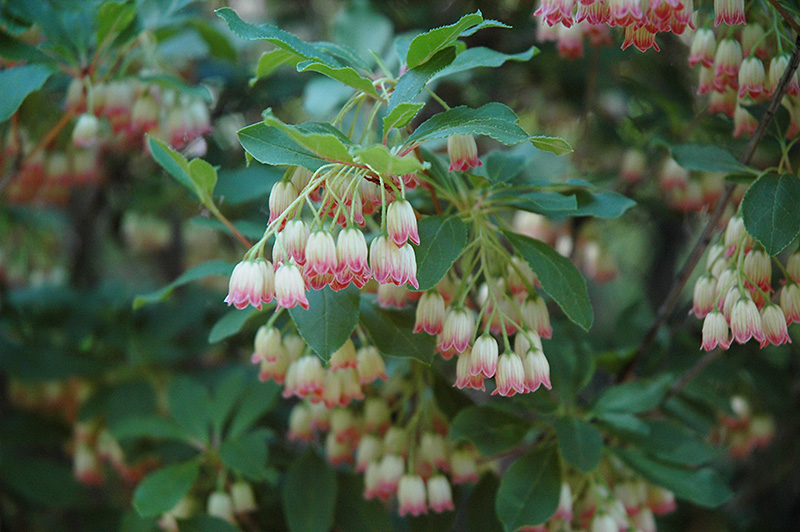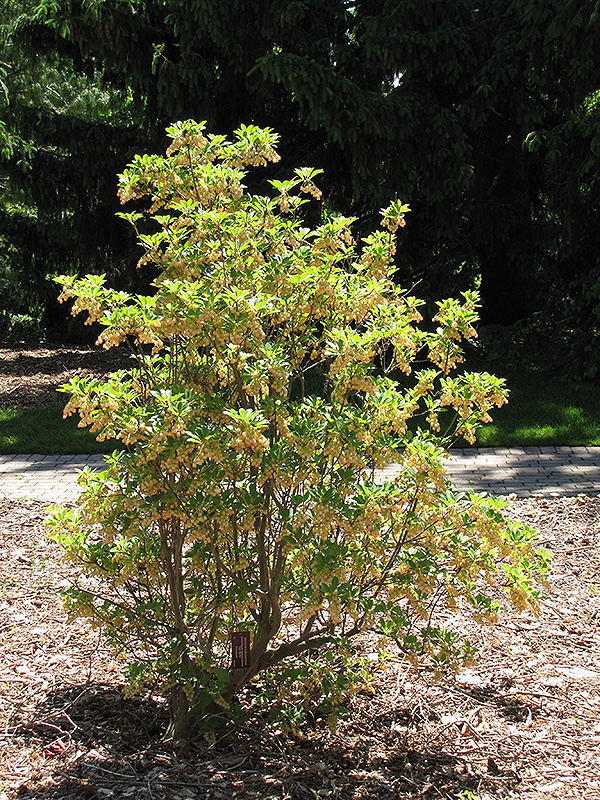Red Bells Enkianthus*
Enkianthus campanulatus 'Red Bells'
* This is a "special order" plant - contact store for details
Height: 6 feet
Spread: 4 feet
Sunlight:
![]()
![]()
Hardiness Zone: 5a
Other Names: Redvein Enkianthus
Description:
A compact garden shrub for the collector, with dainty red-tipped bell-shaped flowers with red veins in spring and spectacular fall color; very fussy about growing conditions, a perfectly drained yet moist acidic soil is essential
Ornamental Features
Red Bells Enkianthus features dainty racemes of lightly-scented red bell-shaped flowers with yellow overtones and dark red veins hanging below the branches from mid to late spring. It has green deciduous foliage. The pointy leaves turn an outstanding tomato-orange in the fall.
Landscape Attributes
Red Bells Enkianthus is a multi-stemmed deciduous shrub with an upright spreading habit of growth. Its average texture blends into the landscape, but can be balanced by one or two finer or coarser trees or shrubs for an effective composition.
This is a relatively low maintenance shrub, and should only be pruned after flowering to avoid removing any of the current season's flowers. It has no significant negative characteristics.
Red Bells Enkianthus is recommended for the following landscape applications;
- Accent
- Mass Planting
- Hedges/Screening
- General Garden Use
Planting & Growing
Red Bells Enkianthus will grow to be about 6 feet tall at maturity, with a spread of 4 feet. It has a low canopy with a typical clearance of 1 foot from the ground, and is suitable for planting under power lines. It grows at a slow rate, and under ideal conditions can be expected to live for approximately 30 years.
This shrub does best in full sun to partial shade. It does best in average to evenly moist conditions, but will not tolerate standing water. It is very fussy about its soil conditions and must have rich, acidic soils to ensure success, and is subject to chlorosis (yellowing) of the foliage in alkaline soils. It is somewhat tolerant of urban pollution, and will benefit from being planted in a relatively sheltered location. Consider applying a thick mulch around the root zone in winter to protect it in exposed locations or colder microclimates. This is a selected variety of a species not originally from North America.
* This is a "special order" plant - contact store for details


